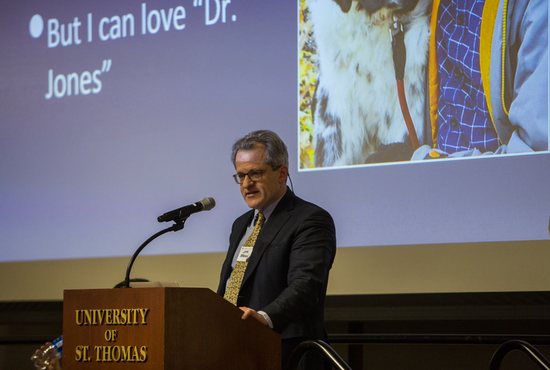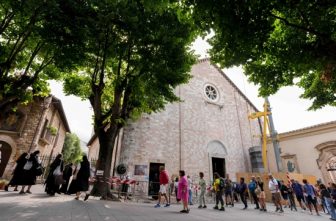
In November, a Chinese scientist announced that he had defied standard medical ethics and genetically altered the embryos of three babies — twin girls already born, and one still in gestation.
That is the most dramatic example of what can be done with gene-editing technology known as CRISPR-Cas9. But it’s not the only application of this tool, which scientists have developed and honed over the last 10 years or so.
Now, scientists are experimenting with CRISPR pigs genetically engineered to resist a flu virus that is deadly to the animals, and a CRISPR mouse with a genetic change in its liver to help advance the study of an inherited human disease known as HT1.
CRISPR pigs also have been genetically modified in experiments designed to make their hearts and other organs more readily transplantable to humans. Scientists are studying modifications in rats to render them sterile and wipe them out as a form of pest control, and sterilization of a species of mosquito to eliminate the carrier of malaria, Zika and other viruses.
The emergence of such powerful technology raises urgent ethical questions not only about genetically altering humans, but also animals, insects and plants, said three professors and researchers at a Feb. 28 panel discussion of the issues at the University of St. Thomas in St. Paul. And, the panelists suggested, people’s moral responsibilities, informed by a variety of perspectives, including Christian teaching, must be part of the conversation.
‘All Creatures Great and Small’
Titled “All Creatures Great and Small: Discerning the Limits of Genetic Modification,” the discussion’s sponsors included the university, its Office of Sustainability Initiatives and its Terrence J. Murphy Institute for Catholic Thought, Law, and Public Policy; and Anselm House, a Christian study center serving the University of Minnesota Twin Cities, near that school’s St. Paul campus.
“The diversity of contributors only serves to highlight the vitality of the issues we are talking about tonight,” said Christopher Thompson, panel moderator, a professor of moral theology at the St. Paul Seminary School of Divinity and co-director of the Murphy Institute, as he also noted the collaboration of the seminary’s Institute for Theological Research and the Institute on the Environment at the University of Minnesota.
Introducing the discussion with comments about Pope Francis’ 2015 encyclical “Laudato Si’: On Care for Our Common Home,” Thompson said the pope calls on “every person on the planet and the Catholic community in particular, to give special attention to the care of creation and to the stewardship of the earth’s resources.”
Pope Francis argues for a religious respect for the integrity of creation, a point of departure that should give people pause about altering and manipulating God’s creatures, Thompson said.
“It is not only important, but essential that we take time to develop a set of values that might guide a protocol concerning genetic research and the manipulation of creatures,” said Thompson, who explored those themes and more in his 2017 book, “The Joyful Mystery: Field Notes Toward a Green Thomism.”
‘Should we do it?’
Thompson’s perspective was echoed by Order of Preachers Father Nicanor Austriaco, one of the panelists and a professor of biology and theology at Providence College in Providence, Rhode Island, after he introduced CRISPR and its capabilities.
Central ethical questions, he said, include, “Should we do it? How should we do it? Why should we do it?”
Admitting he was only beginning to think about the ethics of gene editing creatures other than man, Father Austriaco said there clearly is a difference between human beings and “things.”
But where should animals be placed in the spectrum of things nonhuman? he asked.
“Is it a person or is it property?” he asked. “And I’m going to propose to you that our culture struggles with this question. Some people treat animals like persons. And some people treat animals like property, and neither of those work.”
Father Austriaco said he views animals as “a gift.”
“And this is a radically Christian perspective,” he added.
Treating animals as gifts might help people understand an ethics of “creation care,” Father Austriaco said.
In “Laudato Si’,” Pope Francis expands on the faith tradition of St. Thomas Aquinas, Father Austriaco said. “I think the challenge in the 21st century is to take that tradition and bring into the conversation,” said Father Austriaco, who, like St. Thomas, is a Dominican.
“There’s already recognition in Aquinas, but not explicit, where there is an independent good in the animal and the plant, that is independent from the stewardship that we have,” Father Austriaco said.
But what that means in specific cases can be difficult to discern, he said. One woman he once spoke with was opposed to animal research, but said she was comfortable with research on a single-cell amoeba, he said. And she was fine with research on mosquitoes and worms, but not so much on fish, asking him at one point, “OK, how big is the fish?”
There seemed to be a sense from the woman of opposition to research on animals that suffer, that have some sentience, he said. But it was not crystal clear.
“So it became very interesting, because it wasn’t clear to me what the principle was for her opposition to animal research,” Father Austriaco said.
Cultivating virtues
On another level, people use animals for food and clothing, which is legitimate, but the animals should not be made to suffer or to die needlessly, Father Austriaco said.
That principle connects to research because “sometimes we (the scientific community) tend to do science for the heck of it,” or because of a “technological imperative” tied to ambition — that because scientists can do, they want to do it, and “we want to be the first to do it,” he said.
Cultivating virtues such as humility and gratitude to God and neighbor, as encouraged by the Catholic Church, can help point the way to resisting that technological imperative, Father Austriaco said.
St. John Paul II put it well, Father Austriaco said, when the late pope said that while science can purify religion from error and superstition, religion can purify science of the “idolatry of false absolutes.”
“The technological innovations of CRISPR and all of this gene editing have become an idol,” Father Austriaco said. “So for those of us who are believers, for those of us who are Christians, it is our privilege and our responsibility to always challenge that idolatry by calling our brothers and sisters to virtue.”
Creatures as neighbors
John Berkman, another panelist and a professor of moral theology at Regis College at the University of Toronto in Toronto, suggested viewing all creatures as neighbors, and to abide by God’s call to love them.
“Pope Francis’ ‘Laudato Si’,’ I believe, is a massive breakthrough in our thinking about our relationship with God’s other creatures,” Berkman said. “First, and this is very important: It is the first authoritative statement from the Catholic Church that unequivocally and emphatically teaches the independence and instrinsic goodness of nonhuman animals. There are lots of other documents that might point to it, but this is the first one that (states it) completely clearly and unequivocally.”
“God created the world for them, as well. Not just for us. The rest of creation is not simply a backdrop,” he said. “It’s not just our world, from God’s perspective.”
So people are called to see the intrinsic good of other creatures, which can get complicated, because “what is the intrinsic good of a bat, or a chimpanzee, or a duck or a Komodo dragon?” he asked.
Berkman suggested that viewing animals with love, and working for their natural and supernatural good, as suggested in Pope Francis’ “Laudato Si’,” will help people discern how best to treat them.
“Pope Francis speaks theologically about nonhuman animals in a remarkably Trinitarian way,” Berkman said. “He says God the Father loves animals into existence and continues to love them, tenderly caring for them. He goes on (to say that), Jesus loves every nonhuman animal and guides each one of to their heavenly home. And he says the Holy Spirit dwells in every human animal. He explicitly says all of this.
Furthermore, Pope Francis makes clear that only by being in relationship to God and to other nonhuman animals can we mature as believers.”
Berkman continued: “Pope Francis has given us a basis for a whole Catholic theology regarding nonhuman animals, and has given those of who want to think theologically about nonhuman animals lots and lots of work to do.”
Why we might want to do it — or not
One area in particular where people might want to genetically modify creatures is for quicker adaption to the rapid advance of global warming, suggested Jessica Hellmann, the third panelist, an expert on global change ecology and climate adaption and director of the Institute on the Environment at the University of Minnesota.
“We are modifying our planet in a dangerous way” by contributing to global warming, Hellmann said. “We might want to intervene as humans to counteract those negative effects.”
Animals might be genetically modified to select for traits like heat or drought tolerance, she said. Some of that could be accomplished through traditional breeding methods, but CRSPR might allow for “more specific, more tailored and possibly more effective” outcomes, she said.
Virtues or principles that might lead people to intervene through genetic modification include the duty of stewardship, or proper concern for the planet now and into the future, Hellmann said.
With what she described as a rapidly changing climate, Hellmann said conservation of species and ensuring biodiversity could be reasons to intervene. Meanwhile, scientists must carefully balance the benefits and risks of any decision, employing proper skepticism and anticipation of side effects, and take into account fairness and equity, she said.
Even thinking about intervention as dramatic as genetic modification might prompt people to pause, reconsider and take action in less invasive ways to lessen global warming, such as addressing a chief cause of climate change: people, she said.
“Upwards of a third of climate change to date lies at the feet of Americans,” Hellmann said. “Each day the average American, the average Minnesotan, contributes more than two times the greenhouse gases of the average Chinese,” she said. “And nine-and-a-half times the average Indian.
“That culpability means that we are the ones asking the rest of the world to adjust to climate change, including the use of genetic modification. Unleashing genetic modification to undo the harms of climate change is essentially a rich person’s solution to a rich person’s problem. That strikes me as unbalanced, and unfair to the poor around the world who are vastly less responsible for climate change in the first place,” Hellmann said.
Climate change is one example of a call to better understand and take into account the potential ill effects of genetic modification of animals, even as the potential use of the technology to help solve problems is considered, she said.
“I hope that greater awareness of the power and responsibility of intervention invites us to take a closer look at our moral obligations to nature,” she said.



